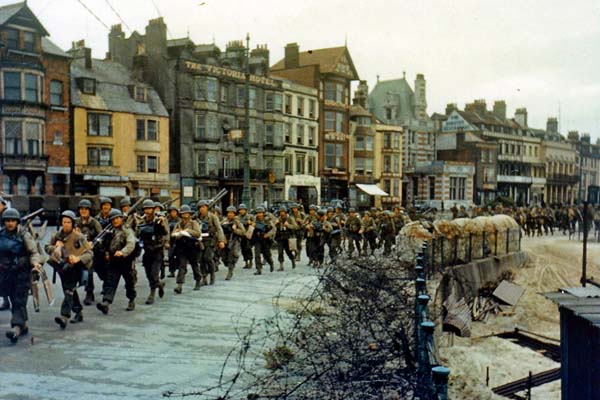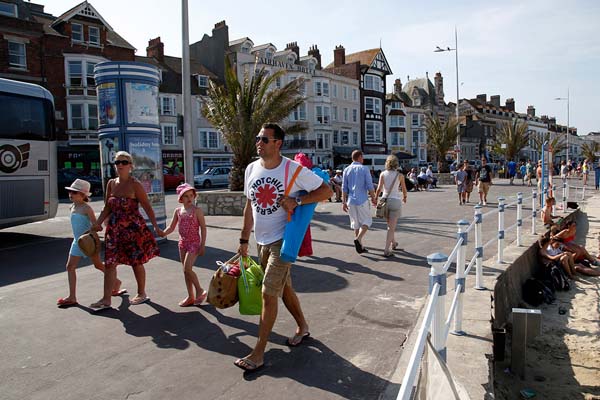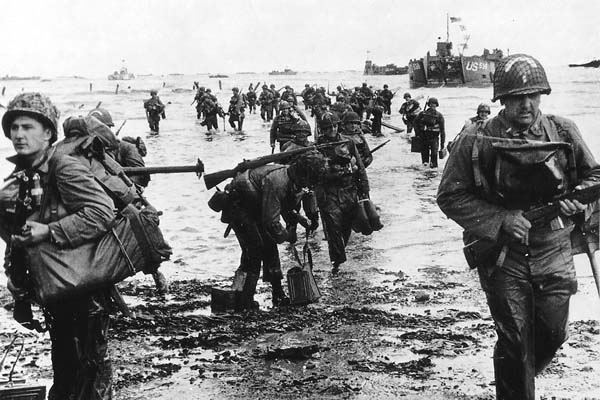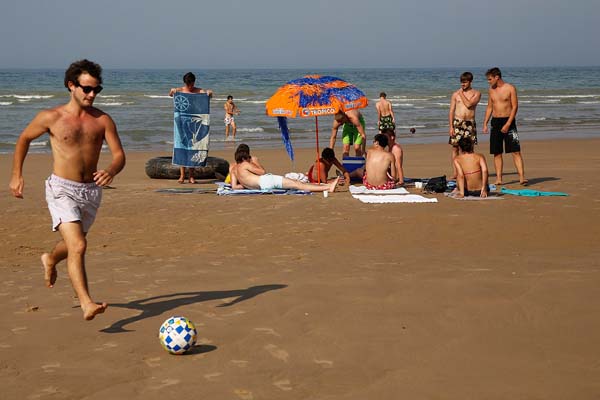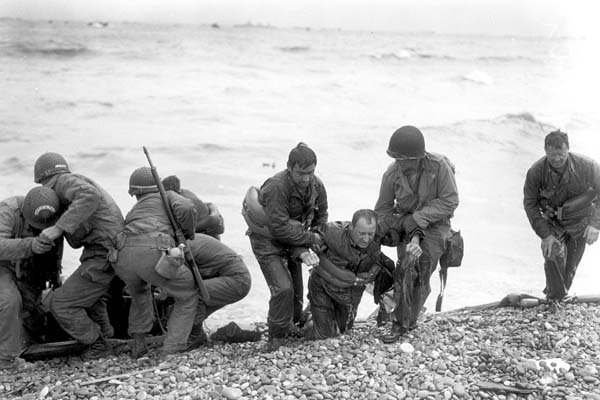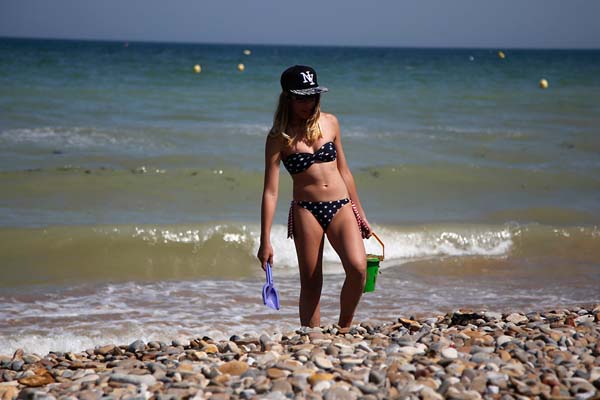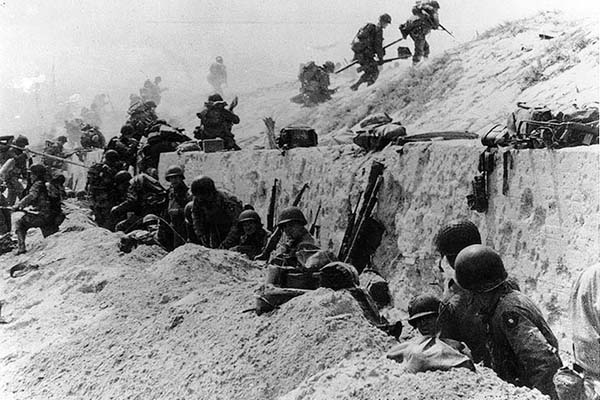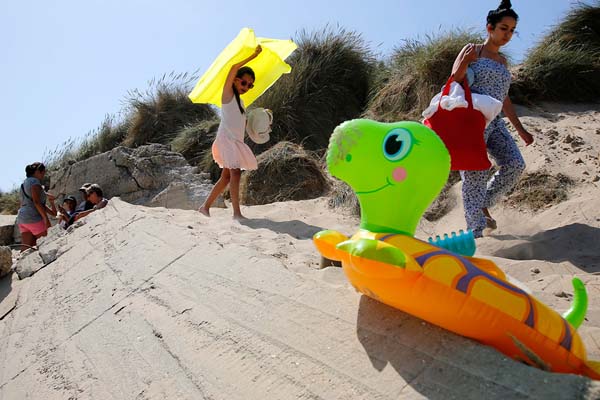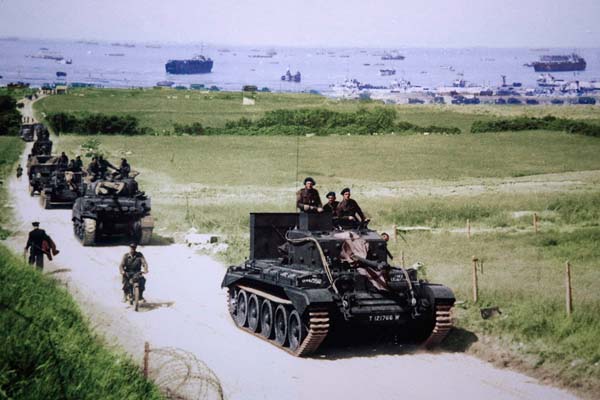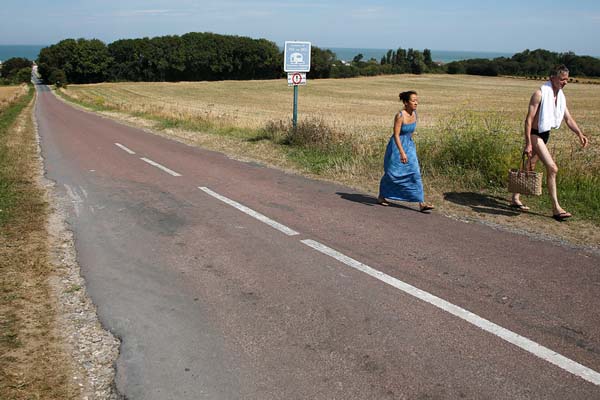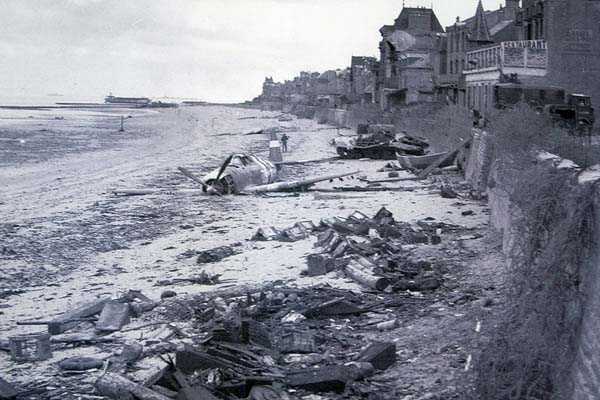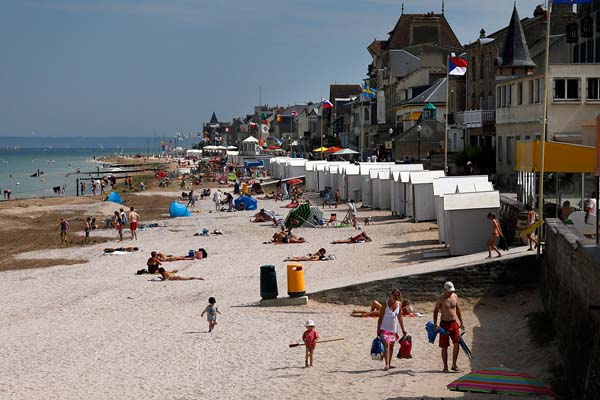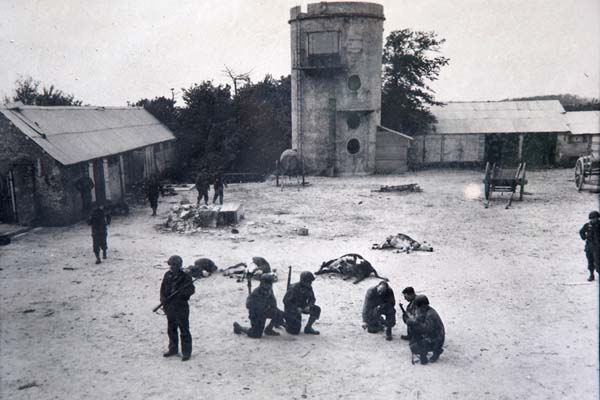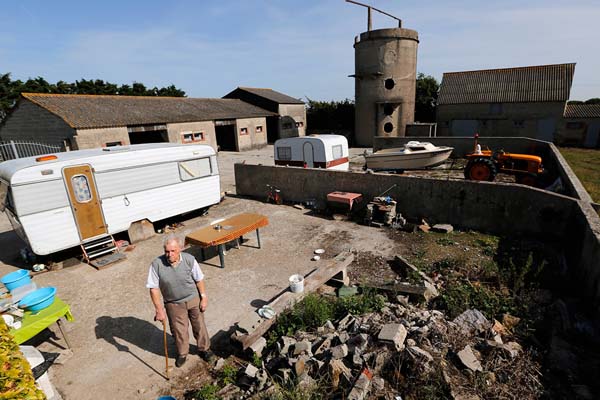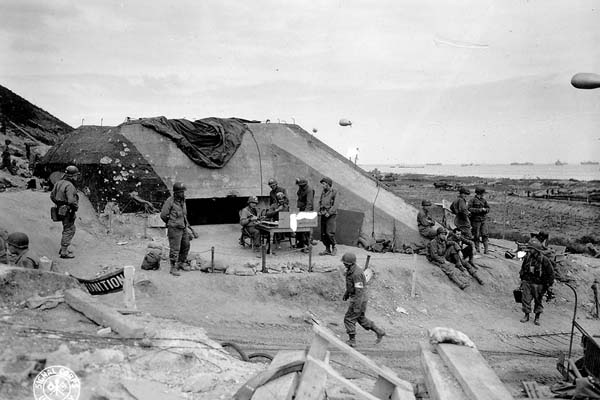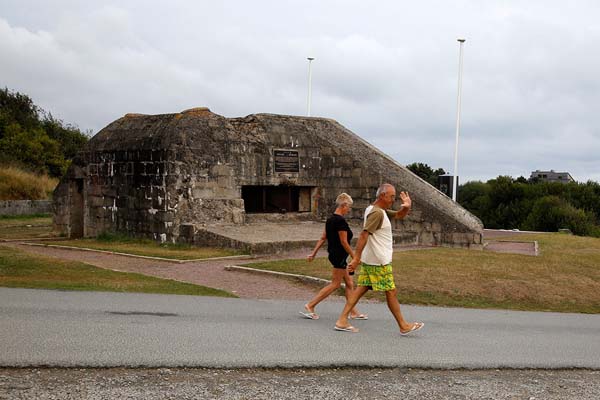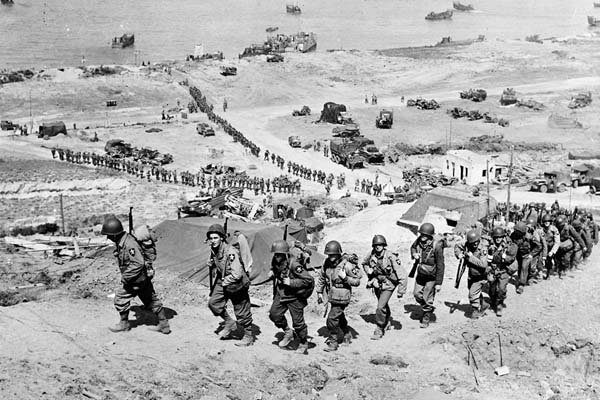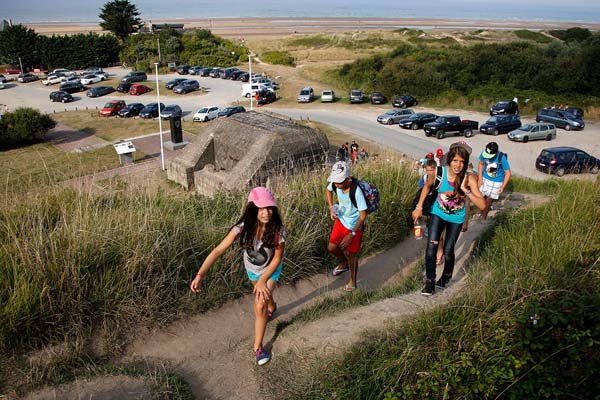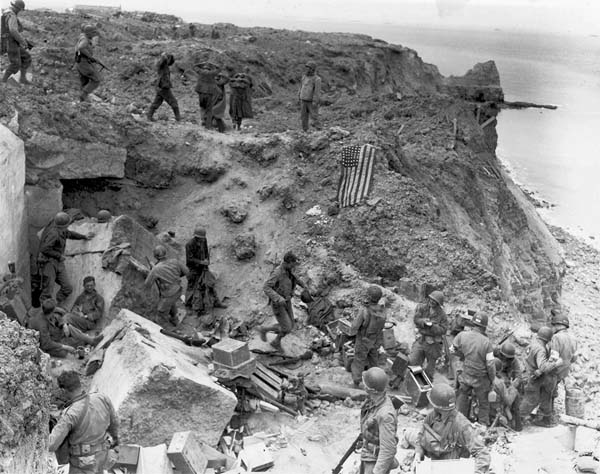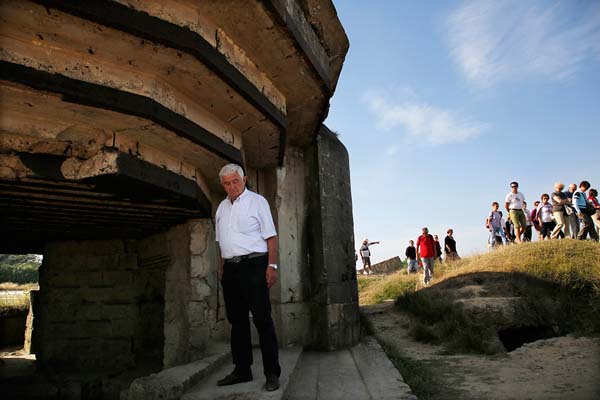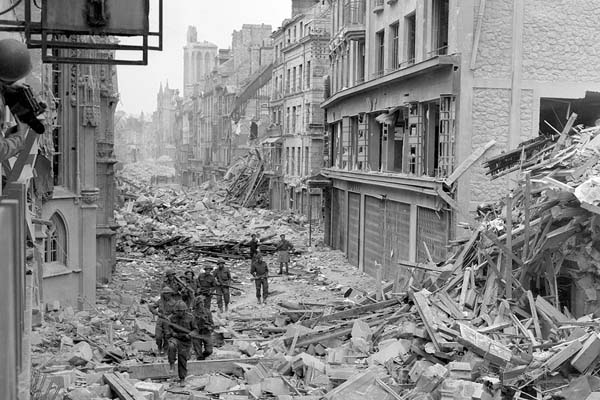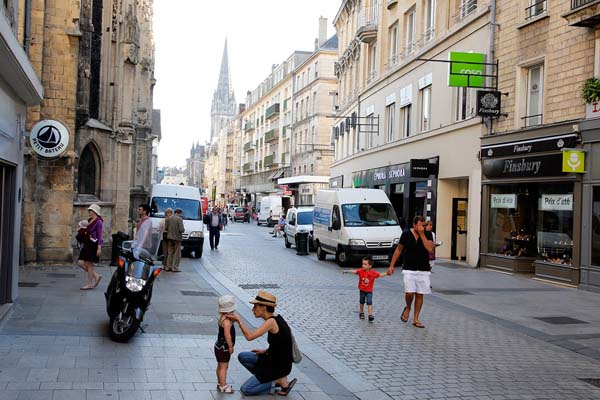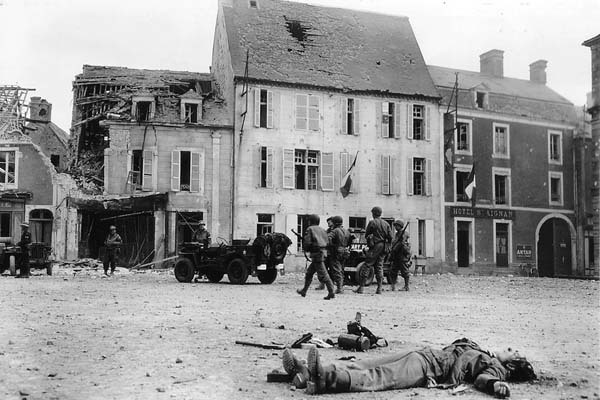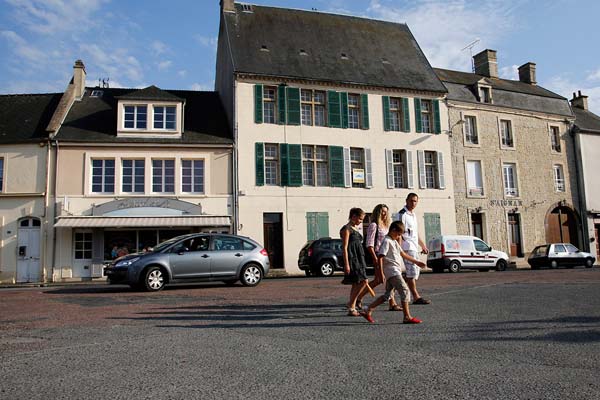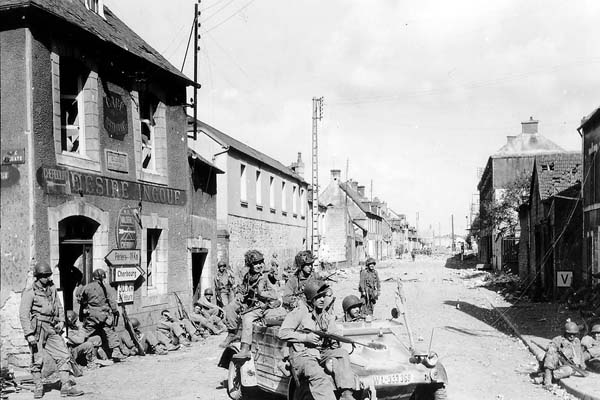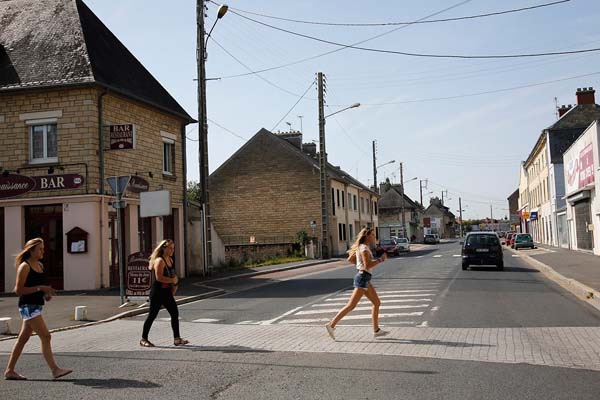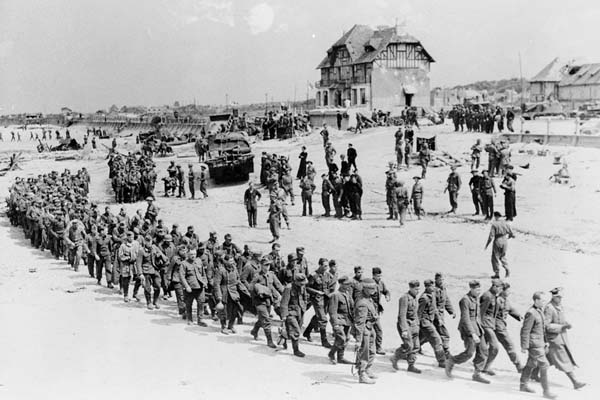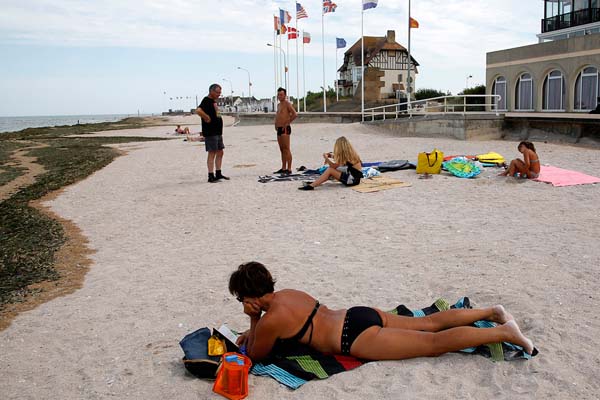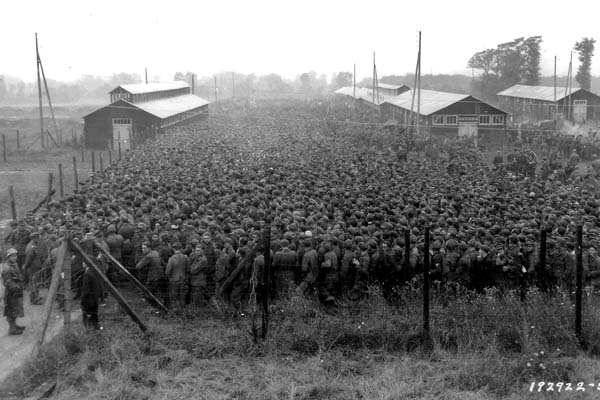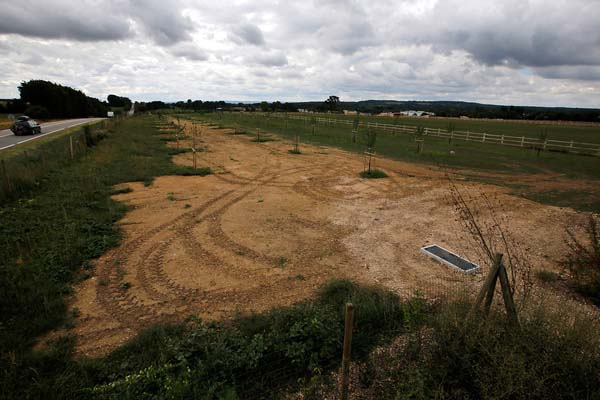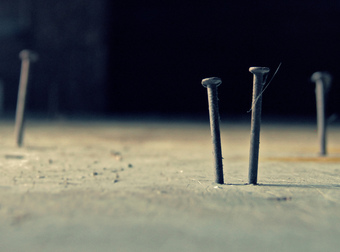June 6 will mark the seventy year anniversary of D-Day, when the Allied soldiers landed on the beaches of Normandy. That operation turned the tide against the Axis powers in World War II. Today, those beaches that were ravaged by war and such a crucial point in the battle are being used by tourists as a place to soak up the sun. They are such beautiful places, it’s hard to imagine what they looked liked on D-Day. This gallery by photographer Chris Helgren compares what those beaches looked like on that fateful day in history and what they look like today. The stark difference is shocking.
The 2nd Battalion US Army Rangers marching through Weymouth, who needed to capture Pointe du Hoc.
Tourists walk along the beach-front at this port that was a departure point for thousands of Allied troops.
US reinforcements land on Omaha beach, near Vierville sur Mer, France.
Now, people can often be seen frolicking on this D-Day landing zone.
A US landing craft was sunk off the coast and other troops are helping them to shore.
A girl walks along that same stony beach, bucket in hand.
US Army soldiers of the 8th Infantry Regiment, 4th Infantry Division, move out over the seawall on Utah Beach.
Now, the remains of that concrete wall is s place where children can play.
A Cromwell tank leads British soldiers away from their landing point on Golden Beach.
This historical site is now a place where couples can sunbathe.
This US fighter jet crashed on Juno Beach, some time after Canadian forces came ashore.
The shore is a popular hot spot for tourists.
US troops make plans while hiding out at a farm near Utah Beach, surrounded by slain cattle.
Farmer Raymond Bertot, who was 19 when allied troops came ashore in 1944, poses on the property.
Troops gather near a captured German bunker on D-Day.
Now, that bunker is a historical site that can be visited near Saint Laurent sur Mer, France.
US Army reinforcements march up a hill after landing.
You can hike up that same hill to see some beautiful history and views.
A US flag lies as a marker on a destroyed bunker.
These bunkers are popular places that tourists visit.
Canadian troops patrol along the destroyed Rue Saint-Pierre after removing German forces.
Now, this street is a popular shopping destination.
A slain German soldier lies in the main square of Place Du Marche in Trevieres.
This square is now a spot countless tourists walk through, right where many have fallen.
US Army paratroopers of the 101st Airborne Division drive a captured German vehicle.
Girls cross the street at the junction of Rue Holgate and RN13, where that vehicle was.
German prisoners-of-war march along Juno Beach.
This woman is sunbathing where many German troops were captured.
German prisoners of war captured after the D-Day landings are closely guarded by US soldiers.
All that remains of that makeshift camp is farmlands.
(H/T International Business Times) Seeing the difference between then and now is shocking. On this anniversary of D-Day in Normandy, remember this momentous, yet still tragic, day. There were approximately 12,000 casualties; 4,414 confirmed dead. This was the largest seaborne invasion in history. This operation began the invasion of German-occupied western Europe… it’s just incredible what these places look like today.
